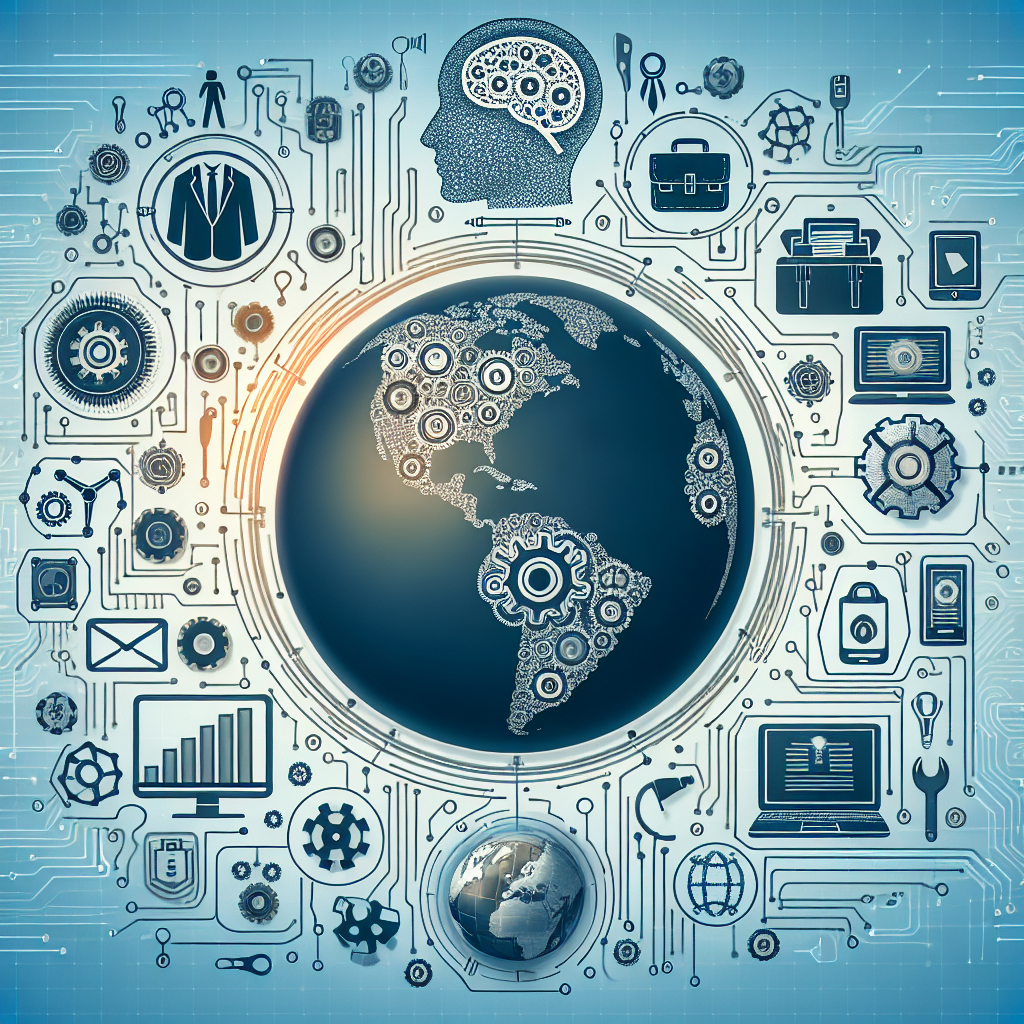The swift evolution of artificial intelligence (AI) is fundamentally transforming the work landscape and reshaping job markets worldwide. As we approach this new era, it’s essential to comprehend the ramifications of AI on employment, productivity, and workforce dynamics.
The AI Transformation in the Workplace
AI technologies—including machine learning and natural language processing—are being integrated into various sectors, automating routine tasks and enhancing productivity. Industries like healthcare, finance, manufacturing, and retail are experiencing substantial changes as AI solutions streamline operations and refine decision-making processes.
Automation of Repetitive Tasks
One of the most profound effects of AI is the automation of tedious and repetitive tasks. This shift enables employees to concentrate on more complex and creatively challenging responsibilities. For instance, chatbots can manage customer inquiries, while AI-powered data analysis tools can quickly analyze vast datasets, producing insights in seconds that would take human analysts hours or even days.
Job Displacement Versus Job Creation
A prevalent concern regarding AI is job displacement. While some positions may become redundant, the rise of AI is also anticipated to generate numerous new jobs that require human oversight, intervention, and creativity. Emerging sectors like AI ethics, data analysis, and robot maintenance will need a workforce skilled in technologies we can only begin to envision today.
Research by organizations such as the World Economic Forum predicts that while automation may eliminate millions of jobs by 2025, it will also create new opportunities. The overall impact could be positive, but it necessitates proactive efforts in workforce reskilling and education.
Shifting Skill Requirements
As AI reshapes job markets, the skills in demand are evolving as well. The emphasis is moving from traditional skills to those that align with technological competencies, creativity, and emotional intelligence.
Continuing Education and Reskilling
To stay relevant, workers must embrace lifelong learning. Institutions and organizations are increasingly focusing on upskilling and reskilling initiatives. Online platforms are emerging, offering courses in programming, AI literacy, and industry-specific skills to prepare the workforce for future challenges.
Additionally, collaboration between businesses and educational institutions will be vital in crafting curricula that correspond with the changing job market. This partnership will help ensure that the workforce possesses the skills necessary to excel in an AI-driven economy.
The Growth of the Gig Economy and Remote Work
AI is also promoting the expansion of the gig economy and remote work. Flexible work arrangements have been facilitated by technology, allowing individuals to work on-demand or from anywhere in the world. This transition presents both opportunities and challenges, requiring adaptability from workers while raising concerns regarding job security and benefits.
AI-Powered Platforms
Gig work platforms like Uber, Upwork, and Fiverr are increasingly utilizing AI to efficiently connect workers with jobs. These algorithms evaluate skills, ratings, and availability, optimizing the hiring process for both workers and employers.
However, this trend also brings up worries about job security and work quality, prompting debates about labor rights and the necessity for regulation in the gig economy.
Ethical Considerations and AI Regulation
As AI becomes more embedded in the workplace, ethical concerns related to its application need to be addressed. Issues such as algorithmic bias, data privacy, and surveillance are central to discussions surrounding AI governance.
Promoting Fairness and Equity
It is crucial to develop frameworks that ensure AI technologies are designed and implemented ethically. This involves creating transparent algorithms, regularly auditing AI systems for biases, and establishing guidelines to protect employee rights.
Collaboration among stakeholders—including businesses, governments, and non-profit organizations—will be essential in fostering a regulatory environment that encourages innovation while protecting workers’ interests.
Conclusion
The future of work in the age of AI is both exhilarating and challenging. While there is potential for increased efficiency and job creation, it relies on society’s willingness to adapt and invest in its workforce. Preparing for this new era involves embracing lifelong learning, ensuring ethical AI practices, and fostering a collaborative approach to job creation.
As we navigate this transformation, it is crucial to understand that the true potential of AI lies not only in automating tasks but also in augmenting human capabilities. By strategically leveraging technology, we can build a future of work that is inclusive, innovative, and sustainable.

